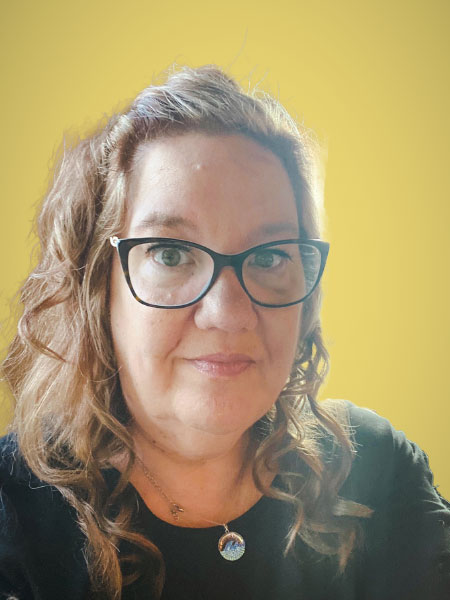
 No.1 Must-Have: “Integrity, both in myself and in others.”
No.1 Must-Have: “Integrity, both in myself and in others.”
Kimberly A. Hullfish, CCIFP, MBA, CRIS, has worked in the construction industry for 22 years. At C. Abbonizio Contractors, a highway and sitework contractor founded in 1973, Hullfish is the director of accounting and compliance. Abbonizio has grown from a small mom-and-pop business to one with revenues reaching $50 million annually. Hullfish has played a significant role in the growth of the company through her work in accounting controls, compliance and policies. Last year, amid the financial uncertainty that came with the COVID-19 pandemic, Hullfish was integral in helping Abbonizio obtain a Paycheck Protection Program (PPP) loan to ensure that the company’s staff would not lose money as a result of halted work. She then passed that experience on to her peers through two webinars on PPP, addressing specific questions from her peers and business associates.
Hullfish joined the Institute of Certified Construction Industry Financial Professionals (ICCIFP) in 2005 and earned her certification in 2012 — one of the only certifications for accounting in the construction industry. As of April 2021, the ICCIFP has combined with the Construction Financial Management Association (CFMA). Originally, ICCIFP was an offspring of CFMA, and they always were related, but a separate entity was formed for the certification.
Ethics is a crucial concept for Hullfish. “Ethics is important for any business, and begin at the top. People learn from watching; if employees see us making ethical decisions, they will follow that lead. Our actions as leaders are important — don’t do anything you wouldn’t want to see on the front page of the newspaper. It’s important to have a code of ethics for your business. There’s a blueprint for writing a code of ethics. Banking and business partners need to see your ethics on display. You have to be transparent and open,” said Hullfish.
Focusing on open communication and transparency is important to Hullfish and tackling those issues in a practical way is a big part of the CFMA education sessions and panels she leads for the association. “Make sure you engage in ‘What would you do?’ scenarios. It’s important to focus on real-life situations,” said Hullfish. And, according to Hullfish, those scenarios are more complicated than ever in accounting. “We’ve gone from an industry that works on handshakes and worries about pricing later to an industry that is married to documentation. These days, invoices are 20 pages as opposed to three. It’s a lot more intensive. Project accountants do a lot more than they used to.”
Hullfish remains engaged with CFMA and has been dedicated in her efforts to expanding the educational seminars held by the organization, and currently chairs the exam development committee. She has chaired or co-chaired the CFMA Mid-Atlantic Conference three times. She was the first recipient of the CCIFP of the Year award in 2000 for her hard work and dedication toward the CCIFP credential. Earning a CCIFP certification is a feat and requires extensive knowledge of all areas of construction financial management. Once you have 3 to 5 years of experience it typically takes 6 to 9 months to prepare for the CCIFP exam.
She has also won CFMA’s 2017-2018 Joe Quigley Memorial Award and CFMA Mid-Atlantic’s 2020 David E. Casey Founder’s Award. “I hear a lot about my involvement and leadership in the CFMA. My involvement has inspired a few women in my organization to do so much more and get involved. That’s what I want to see, we need to be collaborating with everyone. It’s important to see women speaking at functions and trade organizations for the industry. CFMA has come a long way in having women out in front,” said Hullfish.
Hullfish attributes much of her success to two mentors over the years. “It doesn’t have to be a woman. My mentors were both men, it’s not about being a man or a woman but doing the best work. Find a mentor who is gender-blind.” Hullfish says that while it has been more difficult over the past year or two to have face-to-face communication, it’s still an important factor for success. A big part of that in-person connection is having a mentor and attending association events like the CFMA Mid Atlantic Regional Conference, at which Hullfish hosted a panel on ethics and fraud in construction. “Fraud is a danger for all sizes of company,” said Hullfish. “Relationships are part of ethics too — having a reputation for being ethical helps you get jobs and keep jobs.”
